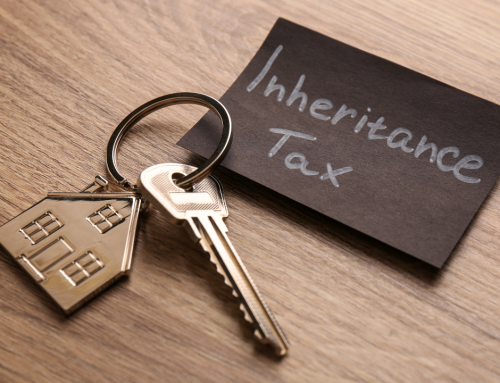Dealing with inheritance tax can be a daunting task. In the United Kingdom, understanding how much money you can inherit before being liable for tax is crucial. This blog aims to clarify the key aspects of inheritance tax thresholds, offering valuable insights for individuals and families.

Understanding Inheritance Tax (IHT):
Inheritance Tax in the UK is a tax on the estate (the property, money, and possessions) of someone who has passed away. There’s normally no Inheritance Tax to pay if either the value of your estate is below the £325,000 threshold, or you leave everything above the £325,000 threshold to your spouse, civil partner, a charity, or a community amateur sports club.
Tax-Free Threshold and Rate:
The standard Inheritance Tax rate is 40%. It’s only charged on the part of your estate that’s above the threshold. For instance, if your estate is worth £500,000, the tax charged will be 40% of £175,000 (the difference between £500,000 and £325,000).
Rules for transferring unused basic threshold:
The basic tax-free allowance available after a spouse or civil partner dies can be up to £650,000 if none of the £325,000 threshold was used when the couple’s first partner died.
The percentage of the threshold not used when the first partner dies raises the basic threshold accessible to the surviving partner’s estate.
You can only transfer the threshold if…
- The pair was married or in a civil partnership when the first death happened.
- You submit the request to HMRC within two years of the death of the surviving spouse or civil partner.
Residence Nil Rate Band (RNRB):
Introduced in April 2017, the Residence Nil Rate Band (RNRB) is an additional threshold for people who leave their home to their children, including adopted, fostered, or stepchildren. For the 2023/24 tax year, the RNRB is £175,000, which means a potential total allowance of £500,000 per individual, or £1 million for a married couple or civil partners, when combined with the standard threshold.
Exemptions and Reliefs:
Certain gifts and bequests can reduce the amount of IHT payable. For instance, gifts to your spouse or civil partner, provided they’re a permanent UK resident, are exempt. Similarly, any gifts to charities or political parties are exempt. There are also other reliefs, such as Business Relief, which can reduce the taxable value of a business by up to 100%.
Gifts and Taper Relief:
Gifts made more than 7 years before your death are generally not counted towards the value of your estate for IHT purposes. Gifts made within 3 to 7 years before death are subject to Taper Relief, which reduces the amount of IHT payable.
Planning Ahead:
Effective estate planning can help in reducing the IHT liability. This could include making a will, considering lifetime gifts, and utilising exemptions and reliefs. It’s advisable to consult a financial advisor or a solicitor for tailored advice.
Conclusion:
Inheritance Tax in the UK can be complex, but understanding the basics of the threshold and exemptions can significantly impact your financial planning. By being proactive and informed, you can ensure that your loved ones benefit as much as possible from your estate. Remember, laws and thresholds can change, so it’s important to keep up-to-date with the latest information.
For personalised advice and assistance with your estate planning, consider consulting a professional at The Will Centre. Our experts can guide you through the complexities of Inheritance Tax and help secure your family’s financial future.






